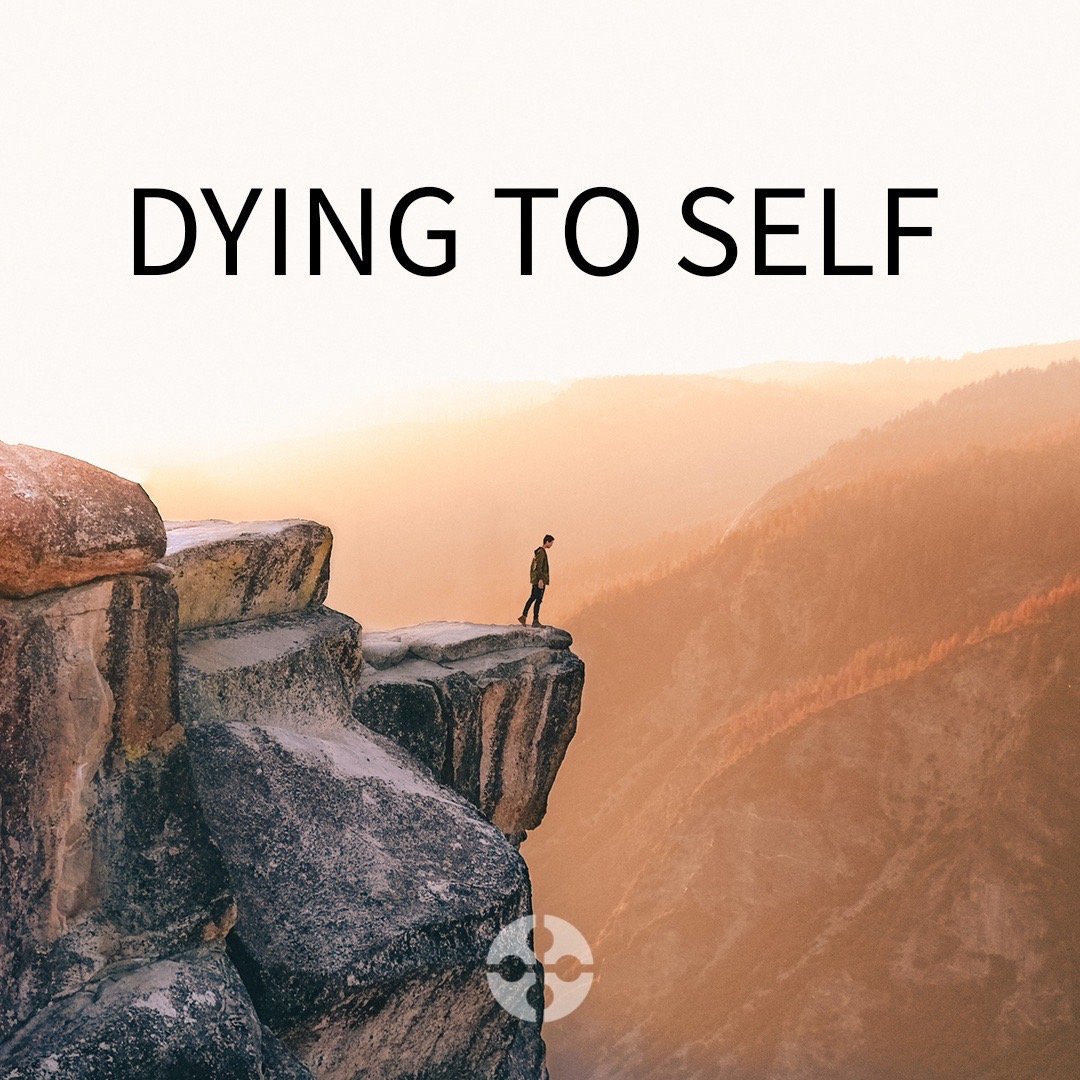Dying to Self
The concept of dying to self has been a theme that I’ve been contemplating lately in light of Ash Wednesday and Lent. Perhaps it’s resonated with my heart so much lately is due to the challenging year this last year has been for my family and I. A job transition after ten years of tenure, launching a new non-profit, raising support, and the many other ways I’ve had to let go and trust really can’t be described as anything other than a “dying to self”.
As I’ve been grappling with this idea of dying to self, my heart and mind have been deeply disturbed by the way I’ve been chained to this illusion of safety out of fear of discomfort or pain. This facade of “safety” has been a guise that inhibits me from faithful obedience. If I’m honest with myself, who, in spite of all of their comforts can sidestep the physical challenges that come with aging? Who can avoid the hard work required by relationships? By life? Jesus alone holds the answer and is the pathway to healing, but still, I can treat Him as some kind of half-hearted side hobby.
Interestingly, when Jesus begins His formal ministry in Mark 1:15 He declares that “the time has come, the Kingdom of God is near. Repent and believe the good news!” The way that you and I take hold of the Kingdom of God is by starting with repentance. It’s only recently dawned on me that the way John the Baptist prepares us for the arrival of the Messiah is by preaching a baptism of repentance.
When we “repent and believe”, scripture explains that we are then “baptized” by The Holy Spirit (Acts 1:4-5) - this word baptizo implies an immersing or a flood. This conjures images of water closing up over you - a dying. Even in water baptism we align with Jesus’ death (going under water) and then being raised to new life (coming out of the water).
This is where the enemy of our souls capitalizes on half-truths. Fear plays its role to perfection by promoting, “look at what you’ll have to give up! You won’t be in control! God will make you do hard things! You’ll have to give up your time, money, and interests!” Could these things be true? Possibly. But in the dying, though hard and painful, there is then a raising to new life. This is the part the enemy doesn’t want you to think about. In the “raising to new life” the power of the Holy Spirit envelopes and sets ablaze every part of you.
Humility is granted as a gift and we discover that our pride has left a wake of destruction. We now seek forgiveness and repent - in Greek the word is metanoia literally meaning “to have a change of heart that leads to a new way of living.” We no longer seek security in finances or health, we don’t need the love and approval or esteem of supposed “onlookers”, and we lay down our need for power and control. How? It’s been put to death, “for it is no longer I who live, but Christ in me.” (Galatians 2:20). This is the secret of the kind of life you seek - it’s only they who lay down their lives that truly find it.
To hold back any part of ourselves from this “dying” only inhibits us. All of me, my will, my volition, the things that captivate my heart and that serve as my motivation for life - it must all be baptized by fire. Purged, and set aflame, it arises anew having been forged by the refining work of the Holy Spirit.
Surprisingly, much of my deepest longings still remain, while others have been burned away. How is it that these deepest longings are still present? How is it that these things that I feared losing are not only still with me but now infused with a fiery passion? Because my deepest desires are birthed in me by God. These yearnings, though sometimes they come out a bit distorted, are actually God-given. Ironic how fear convinced us that these desires are conceived by us and that God might take them away when they were gifts from Him in the first place.
Fear is a formidable foe, enslaving us and blinding us to the life of The Spirit - one that is full, abundant, and powerful. We fear dying to self because it sounds painful. And it is painful. Horribly painful. But so worth it.
The best illustration I’ve heard that resembles what this process is like comes from C.S Lewis’s series, “The Lion, The Witch and The Wardrobe”. Eustice, who was trapped in the form of a dragon, attempted to fix himself by clawing off his scales to no avail. It took the painful clawing of the lion Aslan (resembling God in this story) to restore him:
“The very first tear he made was so deep that I thought it had gone right into my heart. And when he began pulling the skin off, it hurt worse than anything I’ve ever felt. The only thing that made me able to bear it was just the pleasure of feeling the stuff peel off. You know—if you’ve ever picked the scab off a sore place. It hurts like billy-oh but it is such fun to see it coming away.”
“I know exactly what you mean,” said Edmund.
“Well, he peeled the beastly stuff right off—just as I thought I’d done it myself the other three times, only they hadn’t hurt—and there it was, lying on the grass, only ever so much thicker, and darker, and more knobbly-looking than the others had been. And there was I as smooth and soft as a peeled switch and smaller than I had been. Then he caught hold of me—I didn’t like that much for I was very tender underneath now that I’d no skin on—and threw me into the water. It smarted like anything but only for a moment. After that it became perfectly delicious and as soon as I started swimming and splashing I found that all the pain had gone from my arm. And then I saw why. I’d turned into a boy again.”
Like Eustice, we’ve all felt trapped by our own skin. We’ve felt weighed down by a way of being that we can’t seem to fix on our own. It’s only in our dying to self that we can be set free from everything that entangles us to a life that is healed, restored, and infused with purpose.
This is the invitation that stands before you. It will cost you everything, but in doing so you’ll truly live.
If this has stirred something in you and you’d benefit from talking more about the ways you are noticing that God might be inviting you to take a step of faith, drop me a line, I’d love to talk with you more.


